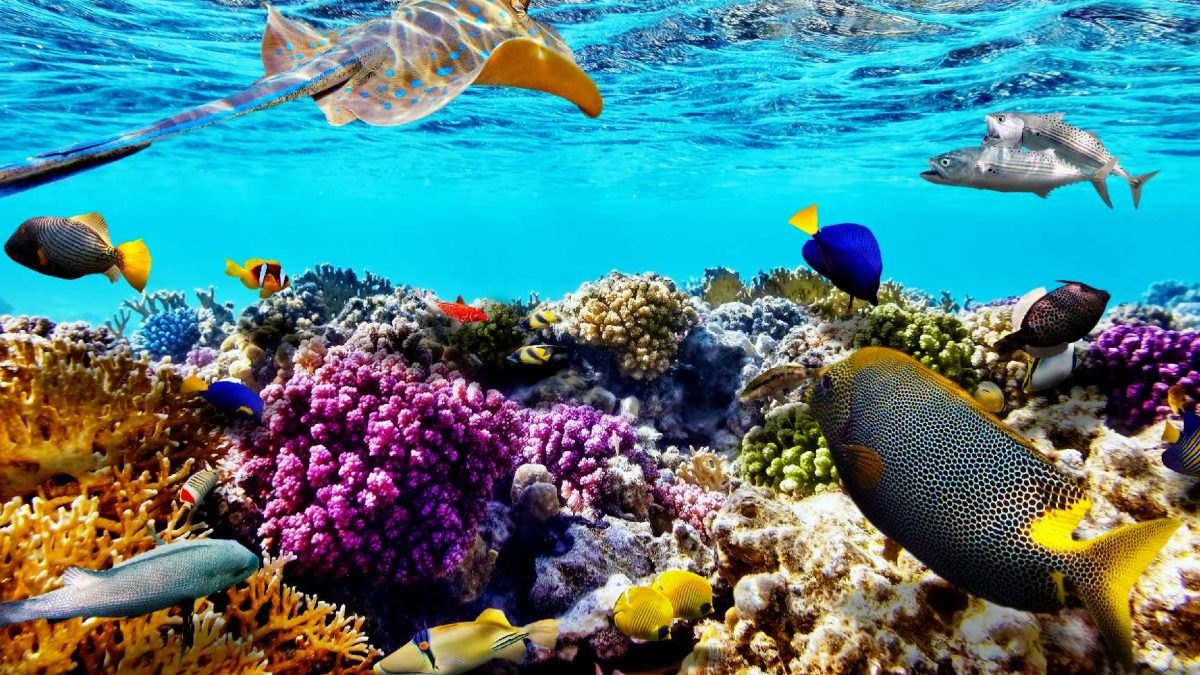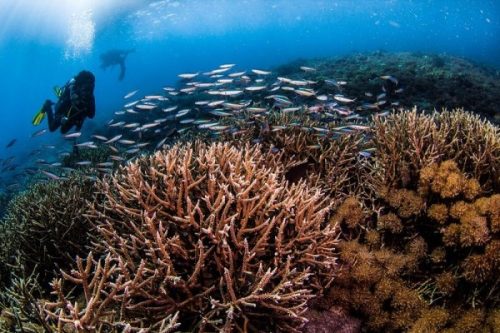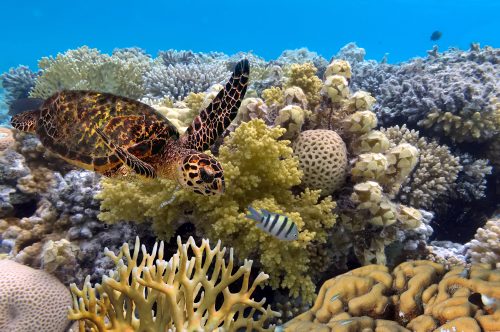The Role of Coral Reef Ecosystems in Contributing to Local and Global Economy

Photo Credit : oceansplasticleanup.com
Coral reef ecosystems are one of the natural wonders rich in biodiversity. In addition to being home to a variety of marine species, coral reefs also have an important role in local and global economies. In this article, we will discuss how coral reef ecosystems contribute to the local and global economy.
- Marine Tourism
One of the economic sectors that is strongly influenced by the existence of coral reef ecosystems is the marine tourism sector. Beautiful coral reefs and high biodiversity attract many tourists who want to explore the underwater beauty. Tourists who come to do diving, snorkeling, or diving activities contribute economically through payment for accommodation, food, transportation, and various other tourist activities. Healthy and well-maintained coral reef ecosystems are a major attraction for marine tourism, which in turn increases local income.
Indonesian:
In Indonesia, one example of an important coral reef tourism economic sector is coral reef tourism on Komodo Island and Komodo National Park. Komodo National Park has an incredible wealth of coral reefs and is home to a variety of species of fish, turtles, and marine mammals. Komodo Island is also famous for the beauty of its beaches. Tourist activities include diving, snorkeling, and sailing around these islands. In addition, there are also tour and guiding activities that support the local economy. The coral reef tourism sector on Komodo Island contributes greatly to income and economic growth in the area.

Photo Credit : Komododivecenter.com
International:
One example of the economic sector of coral reef tourism at the international level is the Great Barrier Reef in Australia. The Great Barrier Reef is the largest coral reef in the world and is a major tourist attraction in Australia. This coral reef attracts millions of tourists every year who come to dive, snorkel, sail, and explore the incredible natural beauty of the sea. The coral tourism sector of the Great Barrier Reef provides significant economic benefits to Australia, creates jobs and supports the tourism and hospitality sector in the surrounding area.

Photo Credit : vlad61
- Fisheries
Coral reefs also play an important role in the fisheries sector, both directly and indirectly. Directly, coral reefs become habitats for various species of fish, shellfish, shrimp, and other marine animals. They depend on coral reefs as shelters, foraging grounds, and breeding grounds. Sustainable fishing and prudent management of marine resources can provide long-term benefits to local fishers and the fishing industry.

Photo Credit : Communities Conservation Livelihoods
Sustainable Ornamental Fishing in Les Village, using ornamental fishing methods that are friendly to coral reefs. They adhere to established fishing rules, such as using fishing gear that does not damage coral reefs and observing the minimum size of fish that can be caught. This helps maintain the sustainability of ornamental fish populations and protects coral reefs from damage. Fishermen in Les Village sell the caught ornamental fish to local traders at fish markets or directly to interested buyers. In addition, they can also sell ornamental fish to the international market through cooperation with ornamental fish exporters operating in Bali. This helps increase fishermen's income and expand market reach for local ornamental fish products.
- Pharmaceutical and Biotechnology
Coral reef ecosystems also have great potential in the pharmaceutical and biotechnology industries. Many species that live on coral reefs produce unique chemical compounds that have the potential to be used in the development of pharmaceuticals and biotechnological products. These compounds have been used in cancer treatment, antibiotics, antifungals, and various other pharmaceutical products. Sustainable exploitation of coral reef resources can provide long-term economic benefits through the discovery of new compounds of high value.
Sea sponges (Porifera) are a potential source for pharmaceutical compounds. Sea sponges are organisms that live on coral reefs and other marine waters. They have the ability to produce unique chemical compounds and have diverse biological activities. Several compounds isolated from sea sponges have shown interesting pharmacological activity, including anticancer, antibacterial, antifungal, and anti-inflammatory activities.
- Climate Change Mitigation
Coral reefs play an important role in mitigating climate change. The decline in area and destruction of coral reefs can negatively impact to the surrounding ecosystems. The main role of coral reefs in helping to mitigate the effects of climate change:
- Coral reefs act as natural fortresses that protect the coast from erosion and abrasion. Coral reef ecosystems can absorb and reduce the energy of ocean waves hitting the coast, thus helping to maintain the integrity of the coastline. Thus, coral reefs help protect coastal communities from the impacts of increased storm intensity and sea level rise associated with climate change.
- Oxygen Producer: Coral reefs also play a role in oxygen production through the process of photosynthesis by symbiotic algae (zooxanthellae) that live in coral tissue. Oxygen produced by coral reefs is an important contribution to the oxygen balance in the ocean and atmosphere.
- Biodiversity: Coral reefs are highly diverse ecosystems and are home to thousands of species of marine organisms. This high biodiversity is important in maintaining the balance of marine ecosystems that play a role in tackling climate change. Organisms on coral reefs play a role in nutrient cycles, food chains, and other ecological processes that contribute to ecosystem balance and further prevention of climate change.
Conclusion
Coral reef ecosystems not only have important ecological value, but also make significant contributions to local and global economies. Through marine tourism, fisheries, pharmaceuticals, and climate change mitigation, coral reefs create increase local incomes, and provide long-term economic benefits. Sustainable conservation and management efforts are essential to ensure that coral reef ecosystems are maintained in order to continue to make a positive contribution to the economy, while protecting priceless biodiversity and ecosystems.

